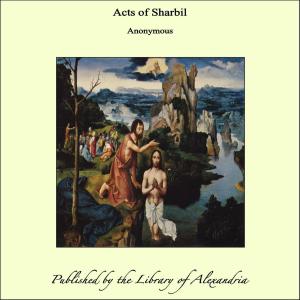Scottish Poetry of the Sixteenth Century
Nonfiction, Religion & Spirituality, New Age, History, Fiction & Literature| Author: | Various Authors | ISBN: | 9781465603821 |
| Publisher: | Library of Alexandria | Publication: | March 8, 2015 |
| Imprint: | Language: | English |
| Author: | Various Authors |
| ISBN: | 9781465603821 |
| Publisher: | Library of Alexandria |
| Publication: | March 8, 2015 |
| Imprint: | |
| Language: | English |
Flodden Field, that long slope looking north-ward by the “deep and dark and sullen Till,” where on a September afternoon in 1513 the flower of Scotland fell round James the Fourth, stands darkly marked on the page of history both of the Scottish nation and of Scottish poetry. It was for the North the burial-place of one era and the birth-place of another. The English billmen who on Flodden closed round the last desperate ring of Scottish spears hewed down with their ghastly weapons not only James himself and his nobles, but the feudal system in church and state, with all that sprang from it, the civilization and poetry of the Middle Ages in Scotland. The national spirit which had burst into leaf at Bannockburn was touched now as by an autumn frost, and a time of storm and darkness must ensue before the country could feel the re-awakening influences of a new spring. The mediæval world, with its charm and its chivalry, its splendour, cruelty, and power, was passing away, while the modern world was in the throes of being born. Had James IV. lived he would doubtless have continued, firm-handed as he was, to hold in check both churchmen and nobles, and the reforms which were in the air might have taken effect like leaven, and not, as they did, like gunpowder. They might have been grafted upon the existing stem, as in England, instead of overturning it. But during the long minority of James V. the abuses of the feudal system, political and ecclesiastical, attained too rank a growth to be pruned by the hand of that king when he came of age, notwithstanding his energy and good intentions. The system, as Macaulay has pointed out, had served its purpose in the Middle Ages as perhaps no more modern system could have done. In the feudal castles and monasteries had been preserved certain lights of chivalry and learning which, without such shelter, must, amid the storms of these centuries, have flickered and disappeared. These lights were now, however, burning more and more dimly. The corruptions of the clergy and the rapacity of the nobles outran all bounds, and between the two no man’s life was safe and no woman’s honour. Like other human institutions, therefore, which have outlived their usefulness, feudalism was doomed.
Flodden Field, that long slope looking north-ward by the “deep and dark and sullen Till,” where on a September afternoon in 1513 the flower of Scotland fell round James the Fourth, stands darkly marked on the page of history both of the Scottish nation and of Scottish poetry. It was for the North the burial-place of one era and the birth-place of another. The English billmen who on Flodden closed round the last desperate ring of Scottish spears hewed down with their ghastly weapons not only James himself and his nobles, but the feudal system in church and state, with all that sprang from it, the civilization and poetry of the Middle Ages in Scotland. The national spirit which had burst into leaf at Bannockburn was touched now as by an autumn frost, and a time of storm and darkness must ensue before the country could feel the re-awakening influences of a new spring. The mediæval world, with its charm and its chivalry, its splendour, cruelty, and power, was passing away, while the modern world was in the throes of being born. Had James IV. lived he would doubtless have continued, firm-handed as he was, to hold in check both churchmen and nobles, and the reforms which were in the air might have taken effect like leaven, and not, as they did, like gunpowder. They might have been grafted upon the existing stem, as in England, instead of overturning it. But during the long minority of James V. the abuses of the feudal system, political and ecclesiastical, attained too rank a growth to be pruned by the hand of that king when he came of age, notwithstanding his energy and good intentions. The system, as Macaulay has pointed out, had served its purpose in the Middle Ages as perhaps no more modern system could have done. In the feudal castles and monasteries had been preserved certain lights of chivalry and learning which, without such shelter, must, amid the storms of these centuries, have flickered and disappeared. These lights were now, however, burning more and more dimly. The corruptions of the clergy and the rapacity of the nobles outran all bounds, and between the two no man’s life was safe and no woman’s honour. Like other human institutions, therefore, which have outlived their usefulness, feudalism was doomed.















